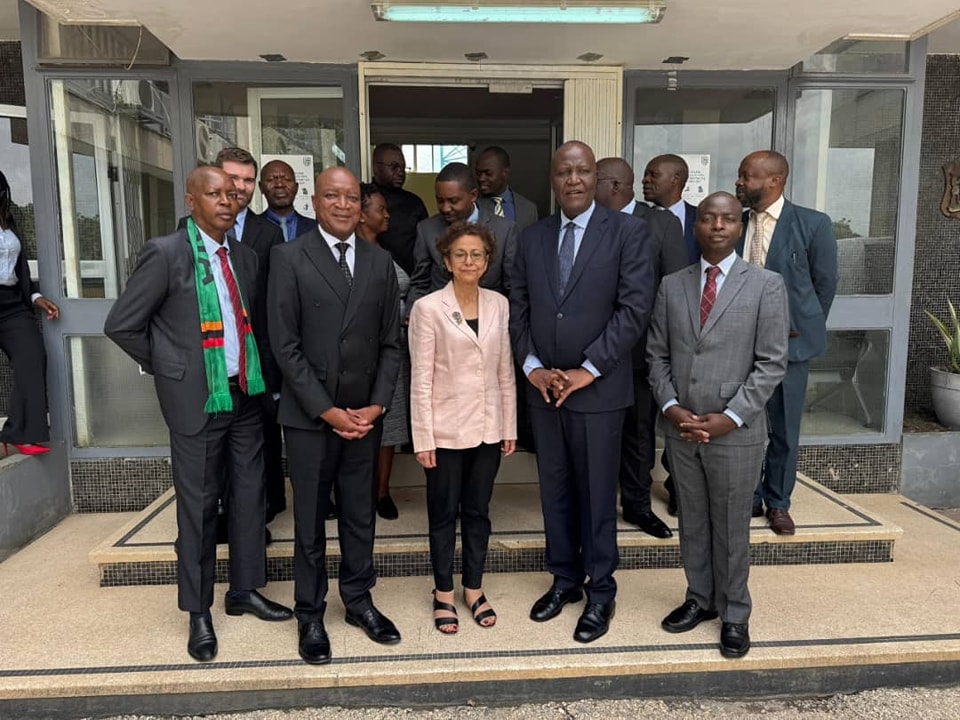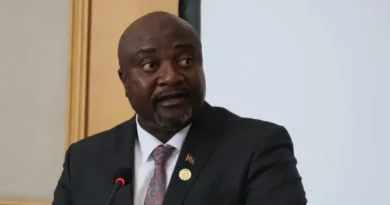Corruption Best Fought from the Classroom – Syakalima
Zambia’s Minister of Education, Honourable Douglas Syakalima, has stressed that combating corruption effectively begins in the classroom, as shaping young minds is key to fostering a progressive society.
Speaking during a courtesy call from United Nations Special Rapporteur for Freedom of Expression and Opinion, Ms. Irene Khan, alongside Minister of Technology and Science, Honourable Felix Mutati, Mr. Syakalima emphasized the government’s commitment to keeping more children in school.
He noted that improving social controls, which had previously collapsed, is critical to reconfiguring society.
“Keeping children in school is an assured way of reconfiguring society, and the process has been heightened through ongoing education policies aimed at shaping a progressive mindset in young people,” he said.
The Minister highlighted that the government is implementing initiatives such as bursary programs and the new school curriculum, which includes components focused on tackling corruption.
“The minds of our children have been corrupted for too long. We must remove the toxicity that has had a cascading effect on our population. The government is on course to fix the narrative and build a just future for Zambia,” Mr. Syakalima stated.
Additionally, Mr. Syakalima disclosed efforts to enhance digital literacy in schools in collaboration with the Ministry of Technology and Science. He emphasized that teaching responsible use of the digital space will help curb harmful vices among learners.
“Efforts are ongoing to inculcate responsible digital habits in learners. Once young people know what is good, they will develop the ability to thwart attempts to misuse digital platforms,” he added.
Meanwhile, Minister of Technology and Science, Honourable Felix Mutati, reaffirmed the government’s commitment to protecting digital rights and curbing the misuse of digital platforms.
He highlighted Zambia’s legal framework, which includes the ICT Act and the Cyber Crimes Act, with the Cyber Security Act currently undergoing amendments.
“This government is committed to safeguarding freedom of expression. The ZICTA Act, which promotes responsible use of the digital space, will soon be enacted,” Mr. Mutati said.
Honourable Mutati also noted the integration of Artificial Intelligence (AI) in the education sector, aimed at enhancing teaching effectiveness.
“AI is being rolled out to support teachers in multitasking, from administrative duties to student engagement, promoting efficiency and effectiveness in education delivery,” he explained.
Reacting to the Ministers’ remarks, Ms. Irene Khan commended Zambia’s efforts in fostering digital rights and emphasized the importance of sustaining these initiatives.
“AI often reflects biases from the global north, so I am pleased that Zambia is addressing issues of equality and non-discrimination through its approach to Artificial Intelligence,” Ms. Khan said.
She further highlighted the crucial role of the Ministries of Education and Technology in shaping a responsible digital generation.
The UN Special Rapporteur on Freedom of Expression and Opinion is in Zambia engaging with government representatives and stakeholders until January 31, 2025.



